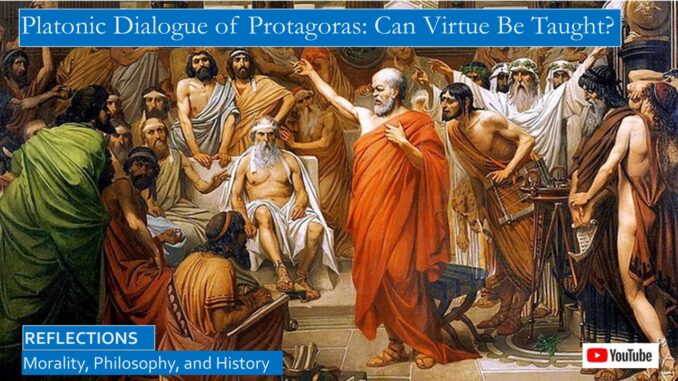
What can we learn from the Platonic dialogue, the Protagoras, where Socrates challenges the Sophist Protagoras?
Was Protagoras correct when he asserts that virtue can be taught?
Was Socrates correct when he asserts that virtue CANNOT be taught? Can they both be right?
What are the components of virtue? Are all these components needed to be virtuous?
YouTube Script with more Book Links:
https://www.slideshare.net/BruceStrom1/platonic-dialogue-protagoras-and-socrates-debate-can-virtue-be-taught
YouTube video for this blog: https://youtu.be/dK5lgoPGKXc
Why was Socrates so hostile towards the Sophists? Was it the Sophists who were corrupting the youth of Athens? These two questions we reflected on in our prior video on the life of the Sophist Protagoras, and the fragments that survive of his work.
The Sophist Protagoras in Plato’s Dialogues, His Biography and Fragments of His Works
https://seekingvirtueandwisdom.com/the-sophist-protagoras-in-platos-dialogues-his-biography-and-fragments-of-his-works/
https://youtu.be/fbGAV9ky8-Q
To understand the Platonic dialogues, we need to understand the Peloponnesian Wars, which Athens lost to Sparta shortly before the composition of the dialogues, the Thirty Tyrants who were installed by Sparta, and who were overthrown for their blood thirsty tyranny, and the Trial and Execution of Socrates.
Summary of the Peloponnesian Wars Between Athens and Sparta
https://seekingvirtueandwisdom.com/summary-of-the-peloponnesian-wars-between-athens-and-sparta/
https://youtu.be/SW9Zq4IiLF0
THE PLATONIC DIALOGUE, PROTAGORAS
Socrates debates with Protagoras respectfully, but in the dialogues, Socrates always wins the debate. Often the loser of the debate looks for an excuse to leave the dialogue after Socrates makes a fool out of them, but Protagoras concedes often when Socrates wins an argument, and it is Socrates who gets up to leave the debate!
Some of Socrates’ arguments don’t seem to make logical sense, some scholars speculate that these faulty arguments are spoofing how Sophists reason imprecisely, concerning themselves more with rhetoric, or pleasing speech, and are less concerned with logic and truth. Whatever sounds best is deemed by many listeners to be true. We only need to look so far as our Presidential debates to confirm that!
The main debate is about defining virtue, and whether virtue can be taught. Protagoras argues that virtue can be taught, whereas Socrates says it cannot be taught. Are these two philosophers arguing about whether virtue is a skill, or whether virtue is a choice? The dialogue ends without a conclusion.
Socrates wants his students to think for themselves, so we cannot assume that Socrates really believes that virtue cannot be taught. After all, at the end of the dialogue Socrates asserts that true knowledge leads to virtue. Perhaps he seeks to dissuade the youths in Athens from studying under the Sophists, who claim to be able to teach anything, for a fee, a generous fee, of course.
What example comes to mind if we assert that virtue can be taught? We need to go no further than the Book of Judges, which is filled with horrible stories that atheists love to parade as proof that God is not a loving god. We must keep in mind the constant theme of the Book of Judges: Everyone in Israel did what was right IN HIS OWN EYES. Which is the slogan of the Sophists.
Unusually for someone whom Socrates defeats in an argument, Plato has Protagoras graciously closing the dialogue: “Socrates, I am not of a base nature, and I am the last man in the world to be envious. I cannot but applaud your energy and your conduct of an argument. As I have often said, I admire you above all men whom I know, and far above all men of your age: I believe that you will become very eminent in philosophy. Let us come back to the subject at some future time.”[1] The irony is that it is Socrates who is the eminent philosopher, only fragments remain of the works of Protagoras.
In a later dialogue Plato does discuss the philosophy of Protagoras in the Theaetetus; Socrates argues that knowledge is not sense-perception or true judgment.[2]
ROLE OF CHARACTERS IN THE PELOPONNESIAN WARS
Many of the Platonic dialogues are commentaries on the Peloponnesian Wars, and many of the students in the Protagoras also appear in the Symposium. The Athenians knew the background of each of the participants, and so should we, to properly interpret the dialogues.
Summary of the Peloponnesian Wars Between Athens and Sparta
https://seekingvirtueandwisdom.com/summary-of-the-peloponnesian-wars-between-athens-and-sparta/
https://youtu.be/SW9Zq4IiLF0
Protagoras is an early dialogue, and the Symposium is suspected to be a later dialogue, but it is odd that many of the guests at Plato’s symposium participated in the arguments in the Protagoras. In the Symposium, Alcibiades, quite drunk, crashed the dinner party at the end, after Socrates gave an eloquent speech on divine love. Alcibiades relates how he tried to seduce Socrates, but Socrates was only interested in loving him with a divine love, seeking to improve his soul, and he so respected his teacher that he did not touch him.
Callias is hosting Protagoras at his home. Callias was an Athenian general in the war, defeated Sparta in the battle at Corinth, and negotiated a peace. Callias hosted Xenophon’s Symposium but did not attend Plato’s Symposium. But in later life, Callias spends his entire fortune on sophists, flatterers, and women, and dies broke and forgotten.[3]
Critias, the leader of the Thirty Tyrants, was a guest speaker at Xenophon’s Symposium, but not Plato’s. The Thirty Tyrants were installed by the victorious Spartans when Athens lost the Peloponnesian Wars. They were overthrown after a bloody short reign where they executed first their opponents, then fellow aristocrats to steal their fortunes.
Paralus and Xanthippus were sons of Pericles. They and their father died early in the war in the plague that struck Athens.
In addition to Protagoras, the Sophists Hippias of Elis, who also has two dialogues, and Prodicus of Ceos attended. Prodicus was the source of the legend where Hercules encountered Lady Vice and Lady Virtue, where they both told him their allures. This was also retold by St Justin the Martyr and Xenophon. Plato respected Prodicus more than the other Sophists. The Sophists were foreigners, none were involved in the war.
These are the dinner guests and speakers of Plato’s Symposium who are also in the Protagoras dialogue:
- Socrates, who is the only guest in both Xenophon’s and Plato’s Symposium.
- Agathon was a tragic poet, the banquet in the Symposium was held in his honor.
- Pausanias was a legal expert, and lover of Agathon.
- Phaedrus was an aristocrat who was a student of Socrates, also appearing in the dialogue, the Phaedrus, and other Platonic dialogues.
- Eryximachus was a physician. Phaedrus and Eryximachus may have been indicted for profaning the Eleusinian mysteries, along with Alcibiades, before the Sicilian Expedition.
- Alcibiades, student and lover of Socrates, crashes the Symposium. Many Athenians blamed him for Athens losing the war.
We also note that several of the students of Protagoras, including Alcibiades, were accused of profaning the mysteries, possibly vandalizing the herms before the disastrous Sicilian Expedition, a stunning military defeat for Athens, where she lost nearly all her navy, that contributed to her eventually losing the war. Alcibiades was blamed for this loss, though the fault should be rather placed on those Athenians who repeatedly drove Alcibiades into exile when he was on the cusp of victory. [4]
St Justin Martyr’s Second Apology to Senate, Quoting Xenophon’s Socrates, Ladies Virtue and Vice
http://www.seekingvirtueandwisdom.com/justin-martyr-second-apology-and-socrates/
https://youtu.be/-E3r8Z4IE1c
Xenophon and Plato, Socratic Dialogue, Symposium, Divine and Noble Love, Part 2
https://seekingvirtueandwisdom.com/xenophon-and-plato-socratic-dialogue-symposium-divine-and-noble-love-part-2/
https://youtu.be/z6X3pwVTdrc
WALKING TO MEET PROTAGORAS, THE SOPHIST
The dialogue Protagoras opens with Socrates’ companion saying he is chasing down the fair Alcibiades, saying he recently left his youth by growing a beard.
Socrates’ companion says he is chasing down the fair Alcibiades, saying he recently left his youth by growing a beard. In a discussion with a companion Socrates said that he has seen him, but then rejoins: “But shall I tell you a strange thing? I paid no attention to him, and several times I quite forgot that he was present.”
His companion asks Socrates if he has “discovered a fairer love,” and Socrates responds that yes, Protagoras is in town, whom he calls the “wisest of all living men.”[5] Was Socrates ironic? Was Socrates jesting? In the Apology describing his trial and execution, Socrates tells the jury that a friend had asked the Oracle at Delphi: Who is wiser than Socrates? The Oracle answered there is no one wiser.
Socrates asks the jury, “Why do I mention this? Because I am going to explain to you why I have such an evil reputation. When I heard this, I said to myself, What can the god mean? How shall we interpret this riddle? For I know I have no wisdom, small or great. What then does he mean when he says that I am the wisest of men? And yet he is a god, and cannot lie, that would be against his nature.”
Pondering the Death of Socrates in Xenophon, Plato, and Aristophanes
http://www.seekingvirtueandwisdom.com/pondering-the-death-of-socrates-in-xenophon-plato-and-aristophanes/
https://youtu.be/Mip1vgRKH1E
Was this an act of hubris on Socrates’ part? Did this contribute to the jury’s eventual decision to pronounce him guilty of corrupting the youth of Athens?
Next in the dialogue, Hippocrates knocks on Socrates’ door, asking him, “Are you awake or asleep”? Hippocrates has heard Protagoras is in town, and he wants Socrates to introduce him. When Socrates asks him whether he wants to study to become a Sophist, Hippocrates is embarrassed and says he only wants to learn skills useful for his rise in politics.
The major criticism Socrates has against the Sophists is that they charge for their teachings, and if we are to believe his biographer, Diogenes of Laertius, Protagoras charges Ivy-League level tuition. He ironically tells his friend Hippocrates that “if you give him money, and make friends with him, he will make you as wise as he is himself.”[6]
Sophists did not have a good reputation with the citizens of Athens, though Protagoras was popular with the politically ambitious Athenians who wished to learn the art of rhetoric, or clever speech. Since his beloved Socrates was tried and executed by a large Athenian jury on charges of corrupting the youth and impiety towards the gods and was painted as a Sophist by the playwright Aristophanes, Plato was eager to both denigrate the Sophists and show that Socrates resolutely opposed the Sophists. When we reviewed the scraps of the biography of Protagoras, and the handful of fragments of his works, these affirmed his poor reputation, but their compilation could have been influenced by Plato’s dialogues.
Socrates, Aristophanes and The Clouds, Capitol Riots, Georgia, and the Big Lie
http://www.seekingvirtueandwisdom.com/aristophanes-socrates-georgia-and-the-capital-riots/
https://youtu.be/Pn7wYntimjo
Socrates asks Hippocrates how a Sophist can make him eloquent, and whether that is important. Isn’t there more at stake when you decide who will teach you philosophy? Socrates asks, “When your soul is in question, which you hold to be of far more value than the body, and upon the good or evil on which depends the well-being of your all, about this you never consulted with either your” family or “your companions.” “You call him a Sophist, but you are manifestly ignorant of what a Sophist is.”
Socrates urges, “Knowledge is the food of the soul, and we must take care that the Sophist does not deceive us when he praises what he sells.” Socrates warns that phony philosophers are ignorant of the effects their teachings have on the souls of their followers, and that “there is far greater peril in buying knowledge than in buying meat and drink.”[7]
WHAT DOES PROTAGORAS TEACH HIS YOUNG STUDENTS?
Plato’s Socrates showed his hostility to the Sophists early in the dialogue. Now, when they knock on the door of Callias’ house, where Protagoras is staying, the servant opens the door, takes one look at Socrates, and proclaims that this house has quite enough Sophists, and slams the door on them. Socrates knocks on the door again and has to convince him he is not a Sophist before he is allowed to enter with Hippocrates.
When Socrates is admitted inside, he tells Protagoras that his young friend Hippocrates has a great natural ability, and “that he aspires to political eminence, and that he thinks that conversation with you is most likely to procure this for him.”
Plato has Protagoras saying that “the art of the Sophist is of great antiquity,” that he understands that the student should be cautious in selecting a teacher, and that he does not believe in deceiving anyone in his purpose, he says that “I acknowledge myself to be a Sophist and instructor of mankind,” he does not conceal this.[8]
Socrates asks Protagoras whether he will help his students become better men. Plato has Protagoras answer that he will not bore him with academic drudgery as do many other Sophists, that Hippocrates will learn with him all that he has come to learn, that he will learn “prudence in affairs private as well as public; he will learn to order his own house in the best manner, and he will be able to speak and act for the best in the affairs of the state.”
This perhaps is analogous to the advice given by St John Climacus who, in the first rung of the Ladder of Divine Ascent, warns us that we should pick our spiritual advisor, and for us that means or priest or pastor, with great care, if we are to dutifully follow his spiritual advice to improve our soul.
John Climacus: First Step of the Ladder of Divine Ascent
http://www.seekingvirtueandwisdom.com/st-john-climacus-first-step-on-the-ladder-of-divine-ascent/
https://youtu.be/Fco0W3bt5GA
Perhaps Protagoras, selling his services, hoping for generous fees, is telling Socrates what he wants to hear, for these are noble Socratic goals. Socrates then asks him if that means he intends to “teach him the art of politics, and that you promise to make these young men good citizens?” When Protagoras says yes, Socrates doubts whether this art can be taught, or even communicated to another man.[9]
Socrates and Protagoras agree that the components of virtue are justice, reverence and holiness, temperance, and finally courage.[10] Socrates asks Protagoras if the components of virtue are one, or if there are separate components to virtue. Protagoras says they are separate, and wisdom is the greatest! Socrates forces Protagoras to admit that this means wisdom and justice do not need to be the same, which means the wise can dispense with justice![11]
PROTAGORAS RETELLS MYTH OF PROMETHEUS
In most Platonic dialogues, Socrates does most of the talking, asking questions to trip up those he entraps in his discussions. But not Protagoras, he does most of the talking, and to prove his point he has long retelling of the Myth of Prometheus, which takes up more than ten percent of the dialogue. It was a rhetorical masterpiece, flawlessly executed, generating applause, so the Sophist could avoid directly answering the question at hand. Sophists had ready many such set-pieces ready to deliver at any time. But it is an interesting speech, so Socrates does not wish to be impolite and interrupt him, when the speech is played out with its clever ending, Socrates calls it a “long harangue, like banging brazen pots.”[12]
In the myth of Prometheus, our hero steals fire from the gods. His punishment is to be bound to a rock, and each day he endures the pain of an eagle, a representation of Zeus, eating his liver. Each night his liver grows back, and each day the agonizing cycle begins anew. In some versions of the myth, Prometheus also creates men from clay.[13]
Plato has Protagoras adding some elements to the myth: in his retelling, the gods ask Prometheus to assist in the creation of all creatures, but he only supervises, he has an assistant Epimetheus to distribute the qualities to each creature. The footnote says that in Greek, the name Prometheus means forethought, and Epimetheus means afterthought. Epimetheus does appear in other retellings of the myth.
In the dialogue, “to some Epimetheus gave strength without swiftness, while he equipped the weaker with swiftness; some he armed, some he left unarmed.” My father would have added to this, he was a welder, but had some philosophical leanings, he said that of those who are not too bright, that at the time of Creation, when the Lord was handing out brains, they thought he said trains, and they said they didn’t need that.
Protagoras explains that the unwise “Epimetheus forgot that he had distributed among the brute animals all the qualities he had to give, and when he came to man, who was still unprovided, he was terribly perplexed.” “Prometheus came to inspect,” “and found that man alone was naked and shoeless and had neither bed nor arms of defense.” So, he stole the mechanical arts and fire from Athena and Hephaestus and gave them to man.
Among all the animals, only man could sacrifice to the gods, but they did not possess the art of governing. “Zeus feared that the entire race of men would be exterminated, so he sent Hermes to them, bearing reverence and justice to be the ordering principles of cities and the bonds of friendship and conciliation.”
“To all,” said Zeus, “I should like them all to have a share; for if cities cannot exist, if a few only share in the virtues, as in the arts. And further, make a law by my order, that he who has no part in reverence and justice shall be put to death, for he is a plague to the state.”
Why should men study the art of virtue? Protagoras has Prometheus answering: “If a man is wanting in those good qualities which are attained by study and exercise and teaching, and has only the contrary evil qualities, other men are angry with him and reprove him, and of these evil qualities one is impiety, another injustice,” which are the “opposite of political virtue.”[14]
DIALOGUE ON VIRTUE CONTINUES
Protagoras reveals that he views that what other men think is the standard of morality. Do Sophists believe there is absolute virtue that, on rare occasions, only one man or one leader in the community possesses?
Protagoras then spends time discussing the value of civic education, but then he proclaims that his teaching definitely “makes a man noble and good, and I give my pupils their money’s worth.” He then even claims that if they consider his fees to be too high, they can go to the temple and inquire from the oracle the proper fee they need to pay.[15] I have been in business, and only someone whose fees are at the top end of the scale will say this. In my professional experience, attorneys who charge top dollar excel more in greed than in competence, and they often win cases more by being a bully rather than by legal acumen.
Socrates, after commenting on how brilliant a speech this was, says he disagrees that virtue can be taught. He directly asks Protagoras: “I want you to tell me truly whether virtue is one whole, of which justice and temperance and holiness are parts; or whether all these are only the names of one and the same thing.” Then they agree that courage and wisdom are also part of virtue.[16]
Why is bravery and courage so elevated? Socrates and Protagoras both agree that courage means, first of all, to join in the battle to defend the city-state. Later they pick up this debate again, agreeing there is a difference between purposeful courage and impetuous foolhardiness.[17] We are again reminded that the ancient Greek culture is a warrior culture, that all citizens must be ready and eager to defend the city-state in war, lest they be defeated and plundered, with the risk that all their military age men be slaughtered, and their women and children be enslaved.
Ancient Warrior Societies, Blog 1, The Warrior Ethos of Ancient Greece, Rome, and Israel
https://seekingvirtueandwisdom.com/ancient-warrior-societies-blog-1-the-warrior-ethos-of-ancient-greece/
Ancient Warrior Culture, Ancient Greece, Rome, and Israel
https://youtu.be/7QAZ_s6zw4E
Ancient Warrior Societies, Blog 2, Greek and Roman Armies and Navies
https://seekingvirtueandwisdom.com/ancient-warrior-societies-blog-2-greek-and-roman-armies-and-navies/
Ancient Warrior Societies, Blog 3, World of the Old Testament
https://seekingvirtueandwisdom.com/ancient-warrior-societies-blog-3-world-of-the-old-testament/
Ancient Warfare in Ancient Greece, Rome, and Israel. Did Joshua Massacre Pagans in Promised Land?
https://youtu.be/9xKxqAbJ2qY
They embark on a long Socratic diatribe; they agree that temperance should be part of virtue. Socrates then trips us Protagoras in an apparent illogical position that is really caused by the imprecision of language, as words in all languages can have multiple meanings. For example, when I was learning Spanish, I learned that langostos is the Spanish word for lobsters. When you read the Gospels in Spanish, you learn that John the Baptist, in the desert, wore animal skins and ate only honey and langostos. How can this be? In Spanish, unlike English, the same word is used for both lobsters and locusts.
Socrates traps Protagoras into agreeing that each component of virtue has an opposite, and only one unique opposite. Then he asks why folly is the opposite of both wisdom and temperance, which either proves that virtues share opposites, or that the unique opposites share words. But Protagoras instead poses a weaker argument, and he infers that truth is relative, and not absolute.[18]
After another clever speech by Protagoras which draws applause, Socrates is ready to leave, but first Callias, then Critias, the future bloody tyrant, and Alcibiades, whom the Athenians blame for their loss in the war, argue that Socrates should continue the argument. But it is Prodicus, the Sophist most highly regarded by Plato, and Hippias the Sophist, who urge that both sides be impartially heard, that they not wrangle, but argue out of goodwill, so all may learn from the debate.[19]
They then discuss the poets, and how they add to the discussion. They quote Hesiod, from his Works and Days:
“On the one hand, hardly can a man become good,
For the gods have made virtue the reward of toil;
But on the other hand, when you have climbed the height,
Then, to retain virtue, however difficult the acquisition, is easy.”
Socrates and Prodicus discuss whether being good is the same as becoming good, which is another way to ponder whether virtue can be taught.[20]
Socrates has a romantic notion of good and evil. Neo-Platonists and St Augustine believe that evil is not a force to itself, that evil is simply the absence of good, that evil is at its core, nothingness. Socrates here defends a more extreme version of this belief: “No wise man will allow that any human being errs voluntarily, or voluntarily does evil and dishonorable actions,” and “all who do evil and dishonorable things do them against their will.”[21]
St Augustine teaches us that we should interpret Scripture with the view that we should Love God totally, with all of our heart, mind, soul, and strength, and that we should love our neighbor as ourselves. Christians should likewise view philosophy in the same manner, allegorizing or discarding that which conflicts with this view, and this implies that love is a choice, that we can choose. But modern psychology and neurology does reveal that indeed, including the demented and deranged, there are people who have no free will. They have no control over whether they violate social norms, their raw emotions control them.
St Augustine: On Christian Teaching, aka On Christian Doctrine, How To Read Scripture
http://www.seekingvirtueandwisdom.com/st-augustine-on-christian-teaching-how-to-read-scripture/
https://youtu.be/uQCnAJMPoos
Glen Campbell Suffering from Alzheimer’s, Early Signs and Symptoms
https://seekingvirtueandwisdom.com/glen-campbell-suffering-from-alzheimers-early-signs-and-symptoms/
https://youtu.be/F9NmDiiPowI
Socrates then asks Protagoras: “Is living pleasantly good, while living unpleasantly an evil?”
Protagoras answers, “Yes, if pleasure be good and honorable.”
This is suggestive of Epicureanism, where we live for pleasant times with our friends, when we live for the weekend, which is really the predominant popular philosophy of our modern age. One of Socrates’ more controversial students was Aristippus, founder of the hedonic Cyrenaic school of philosophy, which may have influenced the later Epicureans under Epicurus, whose philosophy could be characterized as Stoicism-lite.
Was Epicurus Really a Stoic-Lite Philosopher? Were all Epicureans hedonists?
http://www.seekingvirtueandwisdom.com/was-epicurus-really-a-stoic-lite-philosopher-were-all-epicureans-hedonists/
Epicurus, Aristippus, and Lucretius: History of Epicurean Philosophy
http://www.seekingvirtueandwisdom.com/epicurus-aristippus-and-lucretius-history-of-epicurean-philosophy/
Epicurus, Aristippus, and Lucretius: Were the Epicureans Stoic-Lite Philosophers?
https://youtu.be/49Qv3Be86Jw
The translator summarizes Socrates position, “that Socrates states his conviction that when one is sure about what is right, the pursuit of pleasure will not stand in the way of doing it. Yielding to pleasure is nothing but a miscalculation of the consequences of our actions.”[22] Socrates concludes this part of the discussion by noting that “there is nothing mightier than knowledge, and that knowledge must have the advantage over pleasure and all other things, even though pleasure often gets the advantage even over a man who has knowledge.” This reminds us of Solomon, the wisest man of the Bible, whose wisdom is corrupted by the temptations of his many foreign idolatrous wives.
So perhaps the debate of whether virtue can be taught can be reframed, Is virtue a skill that can be taught, or is virtue something we choose? Do we passively learn virtue, or do we acquire virtue by acquiring good habits by living a godly life? And that is the theme for the early monastic Church Fathers. Education is critical for both Protagoras and Socrates, for if we wish to choose virtue, pondering on the nature of virtue is needed to avoid being deceived.
The Sophists, eager to gain students to maximize their fees, tend to teach rhetorical tricks to defeat political opponents rather than political virtue, they teach the relative wisdom that the culture prescribes. Socrates and true philosophers teach the everlasting objective wisdom, the ideal wisdom of the forms, the wisdom that leads to true virtue.
The Philokalia, Classics by the Eastern Church Fathers, the Love of the Beautiful
https://seekingvirtueandwisdom.com/introduction-to-the-philokalia-the-love-of-the-beautiful/
https://youtu.be/rKVBhdHWHGI
Book Review: Early Church Fathers Library – 38 Volumes in 3 Series
http://www.seekingvirtueandwisdom.com/early-church-fathers-library-38-volumes-in-3-series/
Book Reviews on Apostolic and Early Church Fathers
http://www.seekingvirtueandwisdom.com/book-reviews-on-apostolic-and-early-church-fathers/
How To Read Ancient Works, and Book Reviews on the Apostolic Church Fathers
https://youtu.be/I_2q4BiRBlU
DISCUSSING THE SOURCES
We found an inexpensive compilation of the main Platonic dialogues at Barnes and Nobles. You can purchase hardcover collections of the main Platonic dialogues.
St Diogenes of Laertius has a short section on the life of Protagoras in his Lives of Eminent Philosophers, and Frederick Copleston also discusses the life, fragments, and dialogue of Protagoras. These sources are discussed in more detail in our video on the Fragments of Life and Works of Protagoras.
The Great Courses/ Teaching Company has three excellent lecture series on the Platonic dialogues, these have not been transferred to Wondrium yet.
[1] Plato, Essential Dialogues of Plato, Protagoras, 361e, p. 429.
[2] Frederick Copleston, A History of Philosophy, Greece and Rome (New York: Image, Doubleday Books, 1962, 1993), The Sophists, p. 140. We will reflect on this dialogue in the future.
[3] https://en.wikipedia.org/wiki/Callias_III
[4] https://en.wikipedia.org/wiki/Symposium_(Plato) and https://en.wikipedia.org/wiki/Protagoras_(dialogue) and https://en.wikipedia.org/wiki/List_of_speakers_in_Plato%27s_dialogues
[5] Plato, Essential Dialogues of Plato, Protagoras, 309a-309d, p. 381.
[6][6] Plato, Essential Dialogues of Plato, Protagoras, 310d, p. 382.
[7] Plato, Essential Dialogues of Plato, Protagoras, 313a-314a, p. 385-386.
[8] Plato, Essential Dialogues of Plato, Protagoras, 316c-317b, p. 388-389.
[9] Plato, Essential Dialogues of Plato, Protagoras, 318d-320c, p. 390-391.
[10] Plato, Essential Dialogues of Plato, Protagoras, 329c-d, p. 398-399, and 361b, p. 429.
[11] Robert C Bartlett, Masters of Greek Thought: Plato, Socrates, and Aristotle ( The Great Courses, https://www.thegreatcourses.com , 2008), Lecture 14, Protagoras Undone, Guidebook p. 43
[12] Plato, Essential Dialogues of Plato, Protagoras, 329b, p. 398.
[13] https://en.wikipedia.org/wiki/Prometheus
[14] Plato, Essential Dialogues of Plato, Protagoras, 320c-324a, pp. 391-394.
[15] Plato, Essential Dialogues of Plato, Protagoras, 328a-328c, pp. 397-398.
[16] Plato, Essential Dialogues of Plato, Protagoras, 329a-329e, pp. 398-399.
[17] Plato, Essential Dialogues of Plato, Protagoras, 349d-351b, pp. 418-419.
[18] Plato, Essential Dialogues of Plato, Protagoras, 331a-334c, pp. 400-404.
[19] Plato, Essential Dialogues of Plato, Protagoras, 335d-338a, pp. 405-407.
[20] Plato, Essential Dialogues of Plato, Protagoras, 340a-340d, p. 409.
[21] Plato, Essential Dialogues of Plato, Protagoras, 345e, p. 414.
[22] Plato, Essential Dialogues of Plato, Protagoras, Introduction, p. 378.

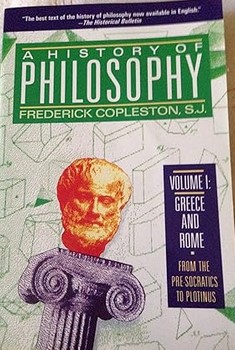
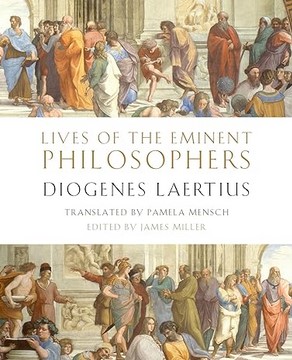
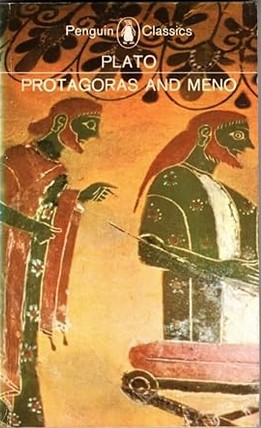

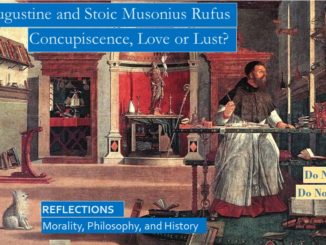

Be the first to comment